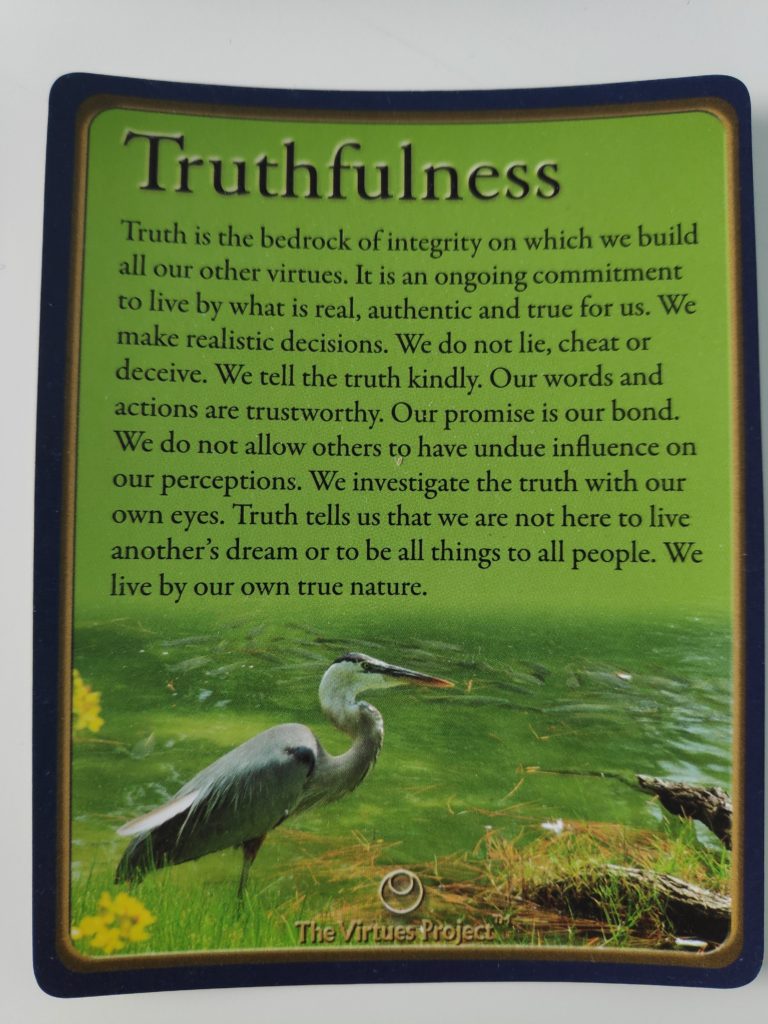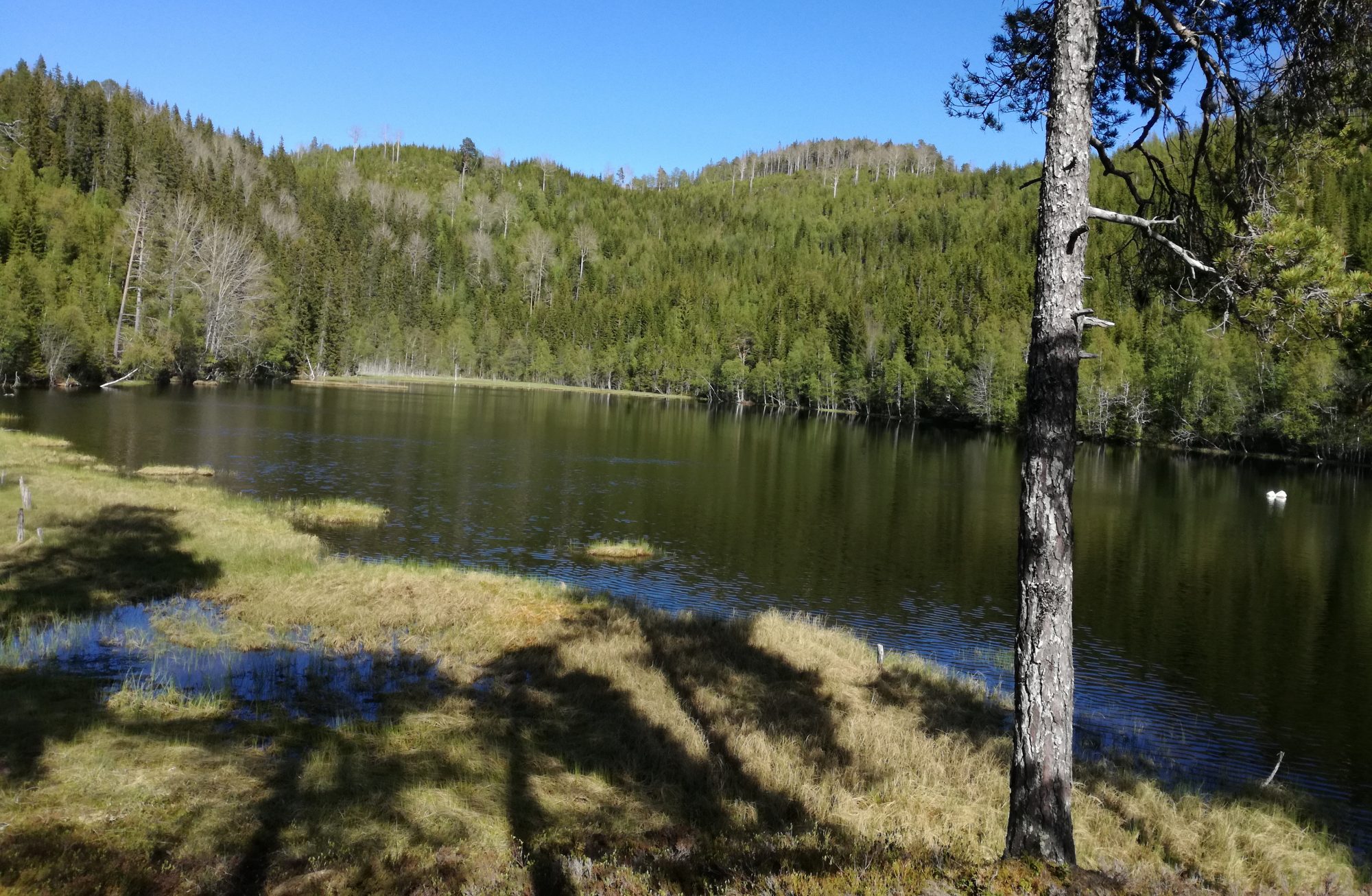Truthfulness is basic for our trust of others and for others to trust us. When we are not sure whether people are telling us the truth, we will have difficulties trusting them in anything. We find out about what is happening in the world through the media, often digital media today. There are many stories of “fake” news, where people are deliberately lying and creating untrue stories. This is not practicing truthfulness.
I remember when my son was six years old, I had first-grade distance learning for him, from the school system in British Columbia. One of the on-going lessons I remember was teaching the difference between fact and fiction. This is a distinction that has to be learned and I’m not sure how well many people have understood this difference.
Many of the stories that we read for relaxation are defined as fiction, in other words it is just a story made up by the author. The people do not really exist, though the stories are often trying to illustrate very human problems and types of people. However, facts are supposed to be truths, something that will be the same today as yesterday. Facts are often expressed using numbers, such as there are 24 hours in the day.
One of the things that I think we have to be more aware of is the difference between “truth” and “opinion”. For example, if I say it is a warm day, that is my opinion and others may or may not agree with me. Someone else may be wearing a toque or gloves, while I am happy in a t-shirt. On the other hand, if I say that the temperature is 13 degrees centigrade, then I am trying to give a measurable fact, and others can interpret whether they think it is warm or cool.

“Truth is the bedrock of integrity on which we build all our other virtues. It is an ongoing commitment to live by what is real, authentic and true for us. We make realistic decisions. We do not lie, cheat or deceive. We tell the truth kindly. Our words and actions are trustworthy. Our promise is our bond. We do not allow others to have undue influence on our perceptions. We investigate the truth with our own eyes. Truth tells us that we are not here to live another’s dream or to be all things to all people. We live by our own true nature.”
When I practice Truthfulness, I:
- speak only the truth
- have no need to impress or deceive others
- use discernment to make good decisions
- tell the truth with kindness and tact
- investigate the truth for myself
- know I am enough.

Your comment about the distinction between fiction and fact is relevant. Fiction is an important teaching tool because a fictional work can be crafted to take specific parameters into consideration, while ignoring others. One can then see how a specific chain of events results in specific consequences.
Computer (or even analogue) simulations are similar to fictional stories, in that they allow events to develop. The advantage is that they can be run numerous times, which can sometimes result in a range of consequences. At other times critical situations can arise resulting in a tipping point, from which recovery is impossible.
To see how simulation can be used in a learning situation, readers are encouraged to read about simulation, perhaps starting with a Wikipedia article: https://en.wikipedia.org/wiki/Computer_simulation
Most people will appreciate discrete event simulations. These requires much less mathematical insights than continuous dynamic situations.
Thank you for your contribution, Brock. It is still important to distinguish between what has actually happened and what might happen. A weather forecast is a good example here. I read the weather forecast in the morning so I can plan what clothes I want to put on, but it is only at the end of the day that I know whether the forecast was correct and if I had the correct clothes with me. Forecasts are just a suggestion of what might happen (hopefully based on scientific knowledge) but it is only afterwards that one can know what actually happened. Forecasts are an important planning tool.
Thanks for the reply, Trish. One challenge is that some people want to deceive others. For them truth is unimportant.
Take Indur M. Goklany, a longtime Interior Department employee who was promoted to deputy secretary with responsibility for reviewing the agency’s climate policies , in 2017 near the start of the Trump administration. The Interior Department’s scientific work is the basis for critical decisions about water and mineral rights affecting millions of Americans and millions of square kilometers of land.
He embarked on a campaign that has inserted misleading language about climate change, including debunked claims that increased carbon dioxide in the atmosphere is beneficial, in at least nine reports, including environmental studies and impact statements on major watersheds in the American West that could be used to justify allocating increasingly scarce water to farmers at the expense of wildlife conservation and fisheries.
Goklany pushed misleading interpretations of climate science, saying it “may be overestimating the rate of global warming, for whatever reason;” climate modeling has largely predicted global warming accurately. The final language states inaccurately that some studies have found the earth to be warming, while others have not. He also instructed department scientists to add that rising carbon dioxide — the main force driving global warming — is beneficial because it “may increase plant water use efficiency” and “lengthen the agricultural growing season.” Both assertions misrepresent the scientific consensus that, overall, climate change will result in severe disruptions to global agriculture and significant reductions in crop yields.
More about this situation can be found in: https://www.nytimes.com/2020/03/02/climate/goks-uncertainty-language-interior.html